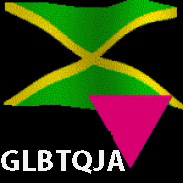Since the recording of this interview there have been some efforts that have borne fruit.
1). The Reggae Compassionate Act
2). The changing attitudes of the police (still needing improvements)
3). The slowly evolving public discourse on LGBT issues
We still have a long way to go.
A point of interest is that Brian Williamson was not the first openly gay individual to go public…Gay Freedom Movement (GFM), founded around 1974 by five Jamaicans and an American Jesuit then working in the island. It focused on consciousness-raising within the LGBT community and professional organizations, issued a newsletter, Jamaica Gaily News, and ran a Gay Youth Program, Prison Outreach Program and a free STD clinic.
Thanks however to Peter and others for highlighting the issues though.
Peace.


